Condottiers and Kings: New Varangians of Ancient Russia. Part of 1
The exact date of the appearance of the first such unit is known - 980 year. Vladimir, who had fled three years ago from Yaropolk to Sweden, "returned to Novgorod with the Varangians and told Yaropolk ambassadors:" Go to my brother and tell him: Vladimir is coming at you, get ready to fight him. "
In military affairs, the Normans, as expected, turned out to be very good, and their reputation in Europe was such that the fallen spirit of Yaropolk made a clear mistake by fleeing from a well-fortified Kiev to Relatives, where he found his death. Both Polotsk and Kiev were captured, even the Varangians took upon themselves the murder of Yaropolk, and it seemed that Vladimir could now live and rejoice. However, it turned out that the Scandinavians were counting not only on the agreed fee, but also on the share in the extraction, which unexpectedly decreased due to the failed assault on Kiev (with subsequent looting, of course). In order to compensate for the lost profit, they demanded that Vladimir pay them a ransom for the capital: hryvnyas per 2 from each inhabitant (this is approximately 108 grams of silver). No matter how you count the population of a city, less than a kilogram of silver per ordinary Varyag fails, rather, more, and much more. Vladimir could not directly refuse them: a Norman combat unit requiring money was not a rally of Russian state employees. But, on the other hand, why pay everyone, even the rank and file, if you can negotiate with the commanders? Having promised the Varangians to raise money in a month, Vladimir very successfully conducted advocacy work among "good, smart and brave husbands", who eventually remained in his service, having received good posts and even cities. The rest, realizing that the situation had changed, asked to let them go to serve in Constantinople. Vladimir gladly fulfilled this request, not forgetting to warn the emperor: "The Varangians are coming to you, do not even think to keep them in the capital, otherwise they will do the same evil to you as here, but put them in different places, but don’t let any one here."
So, despite some complications, the experience of attracting Scandinavian combat units was considered quite successful. The next prince, who will take advantage of Vladimir, will be his son Yaroslav, and in the future this scheme will become traditional: the hired Varyags of Novgorod against the hired pechenegs of Kiev. But the time of the famous king Yaritsleiva of the Scandinavian sagas has not yet come, and while Yaroslav was in the shadows, looking and gaining wisdom. Especially since it was from anyone.
The first of the famous Norwegians with whom Yaroslav could meet was the great-grandson of King Harald the Beautiful-Haired Olav Tryggvason - one of the great heroes of Scandinavia, Snorri Sturlson calls him "the most beautiful, stately and powerful, and also the most skilful of those Norwegians who have ever been it was said in legends. "
In Novgorod he ended up in the year of Yaroslav's birth and spent 9 years there. Olav became the hero of many historical sagas, as well as the work "Acts of the Bishops of the Hamburg Church" (c. 1070) by the German chronicler Adam of Bremen, so that historians have enough information about his life. In 971 he was captured at sea by the Estonian pirates (whom Snorri Sturlson habitually calls the Vikings). Historians identify Estas with Chudya, which in the "Tale of Bygone Years" is mentioned among the peoples "giving tribute to Russia." Further in the "Saga of Olav the son of Tryggvi" it says:
The owner, in turn, traded the descendant of kings for a new cloak. A few years later, Olav was accidentally recognized by Sigurd, the brother of his mother, who came to collect tribute for Prince Vladimir Svyatoslavich, who returned to Novgorod: “Sigurd ... saw a very beautiful boy in the market, and realized that the foreigner. Sigurd asked the boy how he was His name is and who he is. He called himself Olav and said that his father was Tryggvi, son of Olav, and his mother Astrid, daughter of Eirik Biodoskalli. Then Sigurd realized that the boy was his nephew "(Snorri Storlson).
The prince was bought and was in Novgorod. In addition to all the advantages of Olav, he had an excellent memory and, having met Klerkon at the Novgorod market, recognized him. He did not forget the customs of his country:
However, Sigurd took his nephew to his wife Vladimir, who, "looking at Olav, replied that it was impossible to kill such a beautiful child, and called for people fully armed."
Snorri Sturlson calls this woman Allogy and claims that she had a personal warrior squad, which she kept at her own expense, and even competed with the prince "to get the most valiant men in her squad." It is identified by some historians with Olava, which in the Ioakimovskaya chronicle, outlined, but lost by Tatishchev, is mentioned as Vladimir's wife. The situation became so heated that the incident was "reported to the king, and he was forced to appear with his retinue to prevent the bloodshed ... Konung appointed a virus", which the princess agreed to pay to the relatives of the slain. Enrolling in the service of Vladimir, Olav received his first combat experience and even rose to the rank of commander of the local Varangian squad. But then, as they say in the saga, he fell prey to the slander and, feeling the prince’s distrust, left Novgorod. Starting from 991, he made a series of raids on Northumberland, Scotland, Ireland and Wales, as well as on the Hebrides, Isle of Man and Walland in France. In 994, Olav, in alliance with the King of Denmark, Swain Forkbeard, attempted to seize London, but was content with 16 000 silver pounds of compensation, converted to Christianity and, on the way to Orkney Islands, returned to Norway in 995. The ruler of this country, Earl Hakon, fled and was killed by his slave. Adam of Bremen wrote in 1080 g.: "He (Olav) was very skilled in divination ... engaged in witchcraft and kept the sorcerers with him, with whom he conquered the country."
However, folk legends, on the contrary, claim that the trolls and elves left Norway when Olav Tryggvason became the king there: “Our ancient gods burned in fire long ago. There is a kening: the god burner.” The skalds commemorate a mortal with this kening. Olav Tryggvason named him "(Snorri Sturlson).
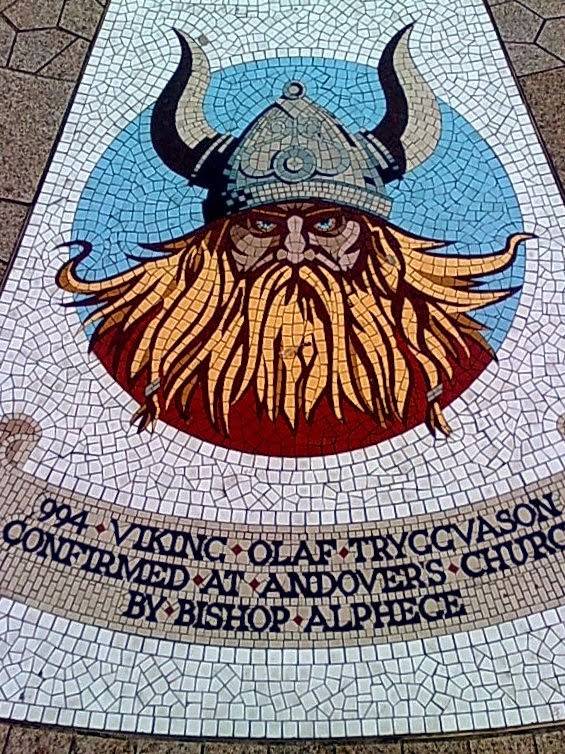
Hallfred Vandradaskald (Hard Skald - that is, a poet with whom it is difficult to compete) wrote about the events of those years:
To the delight of a sweet man,
And I, as a gift from heaven, saved
The custom of the old age.
Odin power was sweet for us
And only coercive force
Gods native skaldov took away
And taught new faith.
But high personal prowess and courage did not save Olav: he was defeated in the war with the sons of Hakon - Yarl Eirik and Swain, who were supported by the kings of Sweden and Denmark, and at the age of thirty died in the Battle of Sveld (1000).
With the death of Olav, Norway for a short time returned to the former gods, but for the introduction of Christianity in Iceland, Olav Tryggvason was canonized by the Catholic Church and is considered the patron saint of this island nation.
The next king of Norway, who visited Novgorod, was Olav Haraldson, who began his viking career in 1007, at the age of 12 years (under the supervision of an experienced helmsman of Hrani). Olav fought in Jutland, Frisia, England, Finland, was baptized in 1013 in Rouen.
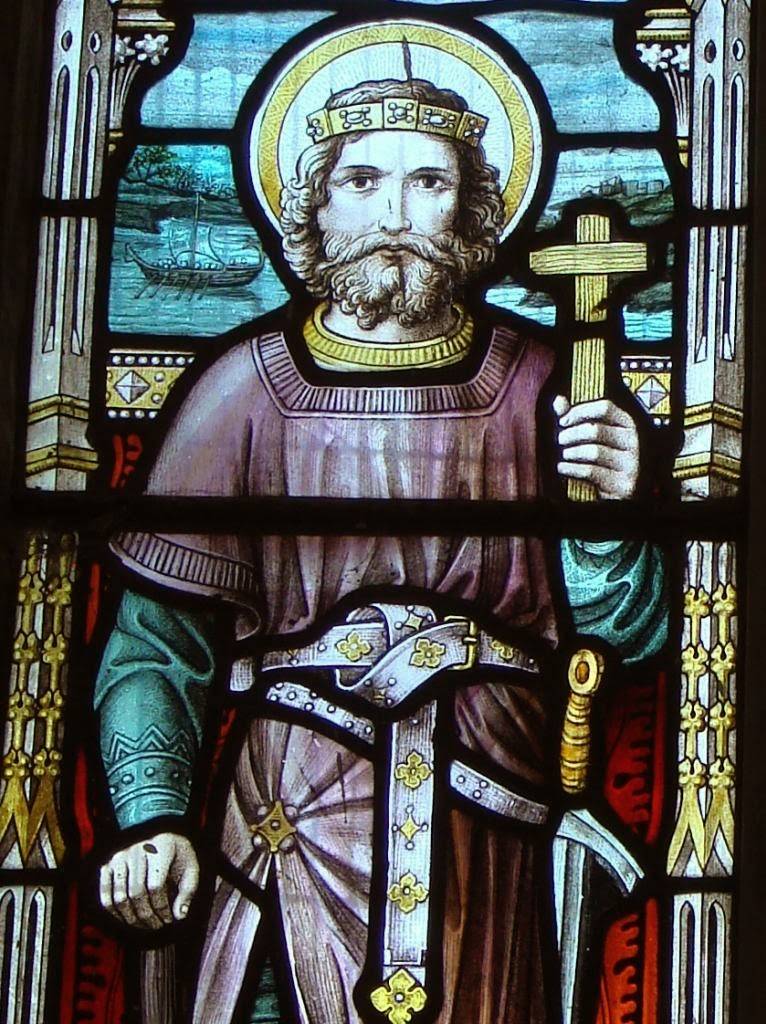
Then his ships came to Ladoga, in the summer he ravaged the coasts of Kurland and the islands of Saarem, Gotland and Oland, and spent the winter in Novgorod, where he could not meet with the local prince, Yaroslav. In 1015, Mr. Olav returned to his homeland and, taking advantage of the favorable environment (Danish king Whip Mighty and Norwegian Earl Eirik, son of Hakon were busy with the war in England), managed to seize power in the country. Supported by the Swedes, Earl Svein was defeated by Olav in the battle of Nesyar. The king of Sweden Olav Shetkonung was just about to give his daughter Ingigerd married.
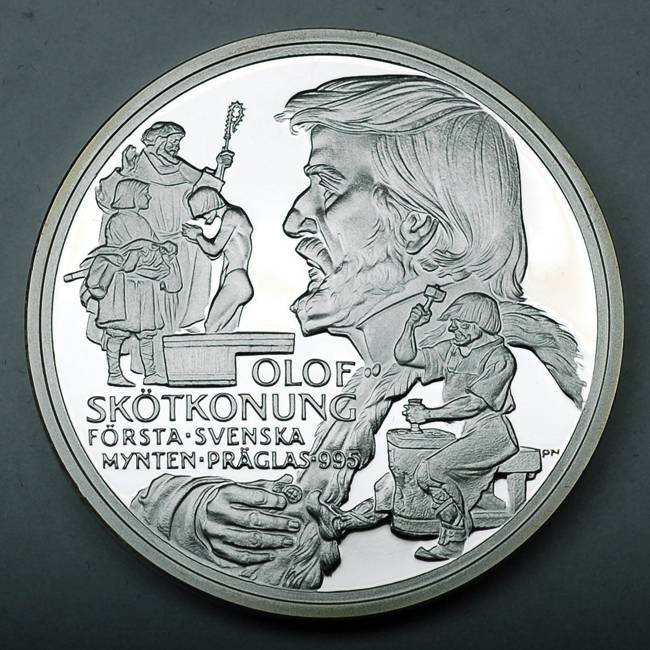
The king of Holmgard Yaritsleiv (now known as Yaroslav the Wise) was recognized as the most worthy bridegroom. But Ingigerd, repeatedly named in the saga of the wisest of women, managed to fall in love with the enemy of her father, the Norwegian hero-king Olav Haraldson, in absentia. Attempts to explain to her that the Norwegian konung Yaroslav is not suitable for footwear, she turned on the princess mode from the Flying Ship cartoon film ("And I don’t want, I don’t want by calculation, but I for love, for love I want!"). For several months, Ingigerd was very skillful and of high quality hysteria, literally driving her father to madness and white heat. Along the way, weaving intrigues, the top of which were the events of the spring ting, on which she persuaded her cousin Rögnnwald to come out with a proposal to end the still sluggish ongoing war with the Norwegian Olav by a dynastic marriage. Ingigerd herself nobly agreed to sacrifice herself to the "enemy of the Fatherland". The proposal pleased everyone except the king, who accused Jarl of treason and threatened with expulsion from the country. But then the “mighty bond” (landowner) Torgnjur rose from his place and declared:
Those who gathered at the Thing greeted this speech with blows of swords on shields, and the king felt a distinct taste of rotten swamp water and immediately recalled that Sweden is a democratic country:
The king had to make peace, but instead of Ingigerd, he sent another daughter to Norway, born from the concubine Astrid. There the story repeated: now the Norwegians did not want to fight the Swedes because of such trifles as a substituted bride, and forced Olav to accept Astrid. Rognvald fell out of favor and was about to flee Sweden - away from the wrath of the king, who threatened to hang him at the first opportunity. Ingigerd saved him, demanding that Rögnwald accompany her to Gardariki - yes, she still had to become the princess of Novgorod, and then all of Russia. But she not only preserved her feelings for the Norwegian king, but did not even hide. These are the passions in the princely family, according to the rotten skin manuscript - Ingigerd says to Yaroslav:
"In this chamber it is good, and rarely where there is the same or great beauty, and so much wealth in one house, and so many good leaders and brave husbands, but still it is better that chamber where Olav king sits, the son of Harald, although she stands on one pillar. "
The king was angry with her and said: “Such words are offensive, and you again show your love for Olav the king,” and hit her on the cheek.
She said: "And yet there is more difference between you than I can, as befits, say with words."
She left angry and told her friends that she wanted to leave his land and no longer accept such shame from him. "
Then, with great difficulty, Ingigerd was able to persuade him to reconcile with her husband. As for Yaroslav, in the same saga it is reported that: “the king was so much in love with Ingigerd that he could do almost nothing besides her will”.
By the time Ingigerd arrived in Yaroslav, Yaroslav waged a difficult war with his brother Buritslav, in which the most active part was taken by the Norman unit of Eymund Khrhinson - the events of those years are described in the article “The War of the Children of Vladimir by the Saints through the Eyes of the Scandinavian Sagas.
Therefore, we will not repeat, but let us tell you about the fate of another Norman detachment, which left Kiev at Constantinople just at that time. Skylitsa writes:
We do not know why this unfortunate Chrysohir decided to leave Kiev at the hottest time of the Civil War, which was just unfolding between the sons of Vladimir. Perhaps the new prince of Kiev decided to revise the terms of the contract. Perhaps there was a conflict within the Norman detachment, part of which soldiers decided to go after Chrysohir, who promised them the "golden mountains" in the service of the emperor. Mutual distrust led to armed conflict and the death of these people.
Fast forward now to 1024 year, when in the fight against his brother Mstislav Tmutorkansky Yaroslav the Wise traditionally used the services of Scandinavian mercenaries. The new Varangian squad differed from the previous ones mainly by the personality of its leader, who, according to the chronicles, was blind! This physical disability did not prevent him from taking an active part in the events that followed. Moreover, if you believe the same annals, he personally fought on the hottest direction in the battle of Listvina and, when his unit was defeated, did not die, as one would expect, but safely left the battlefield and retreated to Kiev. Naturally, immediately there are many questions about this issue. After all, sent "on earnings" squads of the Normans least of all resembled shelters for injured veterans. The selection criteria even ordinary soldiers were unusually high. Pretending to be in the squad of a noble Yarl or "sea king" Scandinavian had to be able to juggle with three drawn swords, throw two spears with both hands at once, catch a dart thrown at him by the enemy (to throw him back at once), fight the sword in one hand and a spear in the other. In addition, the Norman required the ability to row for days without rest, swim in heavy clothing, climb rocks, ski, and archery. All of the above skills can not be called exceptional - in varying degrees, it should have been able to do ordinary, no outstanding warriors. The real heroes could, in full arms, jump higher than their height (for example, the hero of the Saga of Nyala, an Icelander Gunnar from Khlidarendi) and even jump over the enemy who surrounded them.
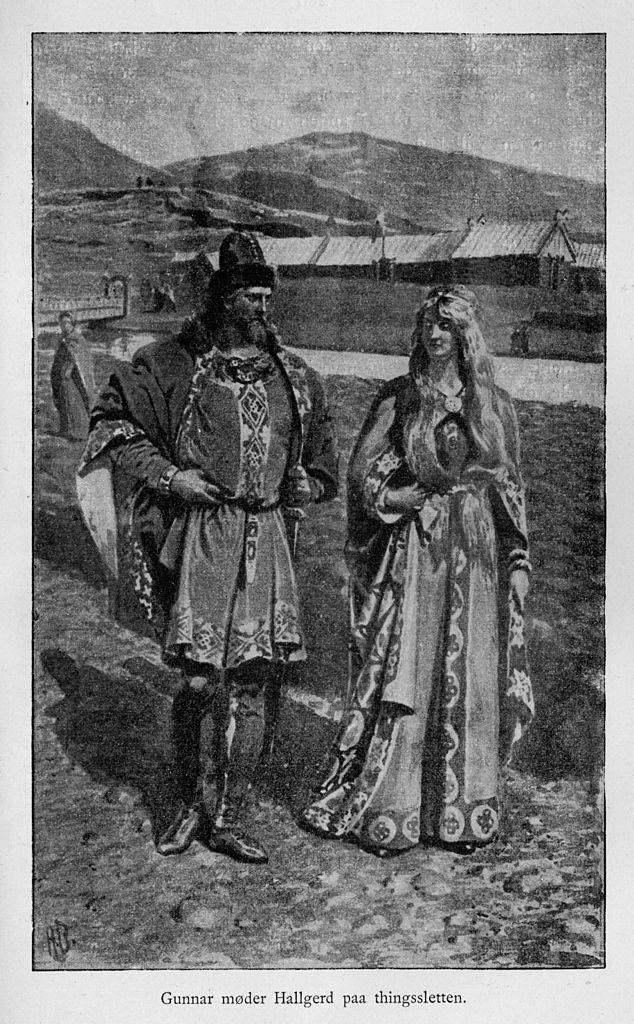
Or, as the Norwegian king Olav Tryggvason, already familiar to us, run along the blades of the ship's oars while rowing.
The same king "put the child with a small plank on his head instead of the goal and shot down the plank with the arrow without the slightest harm to the child." Even more stringent demands were made of military leaders: it depended on them, the Scandinavians would return home with booty and great glory, or die in a foreign land. In addition, it was the leader who entered into an agreement with a foreign ruler and it was not just difficult, but impossible to imagine a king or prince who would agree to pay money to a squad headed by a blind Norman, regardless of his previous merits and military achievements. Let us turn once more to the information that the ancient Russian chronicles and Scandinavian sources report.
So, according to the chronicle data, in 1024, "when Yaroslav was in Novgorod, Mstislav came from Tmutorokan to Kiev, and the people of Kiev did not accept him. He went and sat on the throne in Chernigov ... Yaroslav sent overseas for Varyags, and Yakun came with the Vikings, and there was this Yakun CE LEP, and his cloak (luda) was woven with gold ... Mstislav, having learned about it, came to meet Lichvat towards them. "
So, when the place we need is found, it is easy to make sure that the phrase "CE LEP" clearly serves as an indication of the beauty of this Varangian prince, and not at all of his blindness. Why did this misunderstanding arise? The fact is that at the end of the 18th and the beginning of the 19th centuries professional Russian historians did not yet exist in nature: Old Russian manuscripts were researched and translated into modern Russian by historians-amateurs who took the expression "ce lep" (was beautiful) for the word " blind. " Their works became the basis for the work of later historians who uncritically transferred information about the "blind" Varangian Prince Yakun into their works. Only in the twentieth century the mistake was finally noticed, but, in the writings of Karamzin and other classic historians, no one, of course, corrected it. And because so far, even in serious literature, you can meet with this strange version.
And what about the "blind" Yakun report Scandinavian sources? To begin with, the rare Yakun name in Russia is a variant of the Scandinavian name Hakon (the most famous pairs are the names Igor-Ingvar and Oleg-Helgi). Most modern researchers identify Yakun with the Russian chronicles with the enemy of the King of Norway, Olav Haraldson, Jarl Hakon, son of the former Norwegian ruler Eirik. This version is confirmed in the Scandinavian Saga of Olav the Holy, which emphasizes the beauty of the hero who was captured by King Olav: “Hakon Jarl was brought to the ship of the king. He was handsome at a miracle. He had long hair, beautiful as silk. They They were tied up with a golden hoop. When he sat down on the stern of the ship, Olav said: “The truth is that your race is beautiful, but your luck has been exhausted.” Hakon was lucky at that time: he was released with the condition that he would not appear more in his homeland. went to Denmark and England, where his uncle Knut ruled . Oguchi then - briefly appeared in the territory of Kievan Rus after the death of King Olav, Hakon briefly became the ruler of Norway, but it is here that "the luck of its kind" and exhausted: he died at sea while returning from England..
In 1029, Olav Haraldson again appeared in Russia - he ruled Norway for 13 for years, brutally spreading autocracy and Christianity in her, but not all his subjects liked the brutal power of the king and new religion. As a result, in 1028, Olav was expelled from Norway, and he, through Sweden, went to Novgorod, where he met Ingigerd. Here are some verses he composed at that time:
As she carried her beautiful horse.
A beautiful woman deprived me of my joy ... "
"There used to be a magnificent tree,
Evergreen at any time of the year
And with flowers, as the teams of the Eagles knew;
Now the foliage of the tree quickly faded in Garda;
Since the woman knotted a gold bandage. "
However, if you believe "Strands about Eimund," he was sad not for long, since in Novgorod "he had a secret love affair with Ingigerd." It is not surprising that Yaroslav tried to politely escort the distinguished guest outside his country. At first, he offered him to become the ruler of Volga Bulgaria, an independent state, which Olav still needed to try to win. When Olav refused, Yaroslav, at the first hint of a possible return to Norway, gladly supplied him with "horses and all the necessary equipment." Leaving his son Magnus in the care of Yaroslav and Ingigerd, Olav went to Norway, where he died in the Battle of Stilklivalir (1030).
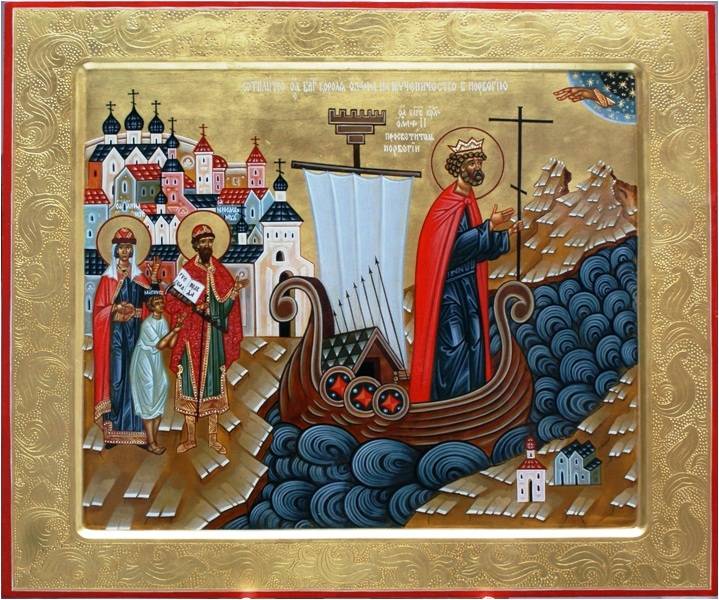
For his efforts to baptize Norway in 1164, by Pope Alexander III, he was canonized and became the last Western saint who was also revered by the Orthodox Church.
Meanwhile, on the territory of Russia at the same time two future horsebacks of Norway appeared at once: the brother of Olav by his mother Harald, who was 15 years old, and the son Magnus, who turned 6. Magnus, as we remember, was left by his father in the care of the Russian princely family. Harald arrived in Novgorod after his defeat at the Battle of Styklastadir (only two fights ended in defeats in which Harald participated - the first, at Styklastadir, and the last - in England, at Stamford Bridge). Olav was against his participation in the battle, but Harald (who, according to the testimony of the sagas, already looked like an adult man) insisted on his own. He was wounded and fled - first to Sweden, then to Yaroslav.
Magnus was the son of a slave, but in those years when every self-respecting king had a lot of wives and concubines, this circumstance did not serve as a great obstacle to the throne. The boy grew up at the court of Yaroslav, constantly circling around the warriors, and during feasts and general dinners he entertained everyone by walking around the tables in his arms. But, as it is told in the Saga of Magnus the Good and Harald the Stern Ruler (the rotten skin manuscript), not everyone loved him:
Upon learning of the murder of a warrior, "said king: Royal work, adoptee, - and laughed, - I will pay for you virus."
Having proved to everyone his "steepness" and readiness to uphold honor and dignity, Magnus not only did not become an outcast in the princely palace, but, on the contrary, raised his status and moved to the position of the beloved "regimental son": love, and he was the more loved, the older and wiser he became. "
And in Norway at this time, as always, sooner or later, occurs with a change of power, sobering comes. The commander who defeated Olav (his former squadron Calv) received nothing as a reward from Svein, the son of King of Denmark Knut the Mighty, who became the ruler of Norway — and the title of Jarl and power over Norway were promised. In turn, both influential labels and simple bonds of this country were dissatisfied with the dominance of the Danes. But they all knew the character of the brother of the former king, Harald, heard that as a child, playing with his brothers, he sculpted soldiers from clay who would take gold away from those lands, they remembered the sword, which was easier to cut their heads, tied to his hand 15 year old boy. The fact that Harald, thirsting for revenge in Russia, grew and gained combat experience, did not please anyone and did not inspire optimism. And because the chances of the young Magnus grew literally before our eyes. Contacts between Russia and Norway after the death of Olav (Yaroslav's ally) were interrupted, trade was banned, but circumstances turned towards a new rapprochement between the two countries. In 1034, despite the ban, a Norwegian merchant Karl arrived in Aldeygyuborg (Ladoga) with his companions:
Yaroslav ordered the merchant to be arrested, but Magnus unexpectedly interceded for him, saying: "Not soon Norway will be mine, if you kill everyone who comes from there."
Thinking, Jaroslav changed his decision:
"King Karl says: Here is the money that you have to take with you, and along with that some difficult thing will follow. You have to give this money to Lendrmann in Norega and all those people who have some influence and who want to be Magnus's friends son of Olav. "
Karl did an excellent job: the ambassadors from Norway arrived in Novgorod the following year. According to the contract, Magnus became the king and adopted son of Calw. He entered the history of Norway with the nickname "Good," but why and on what basis this very warlike and no less cruel king got him, remains unknown to this day.
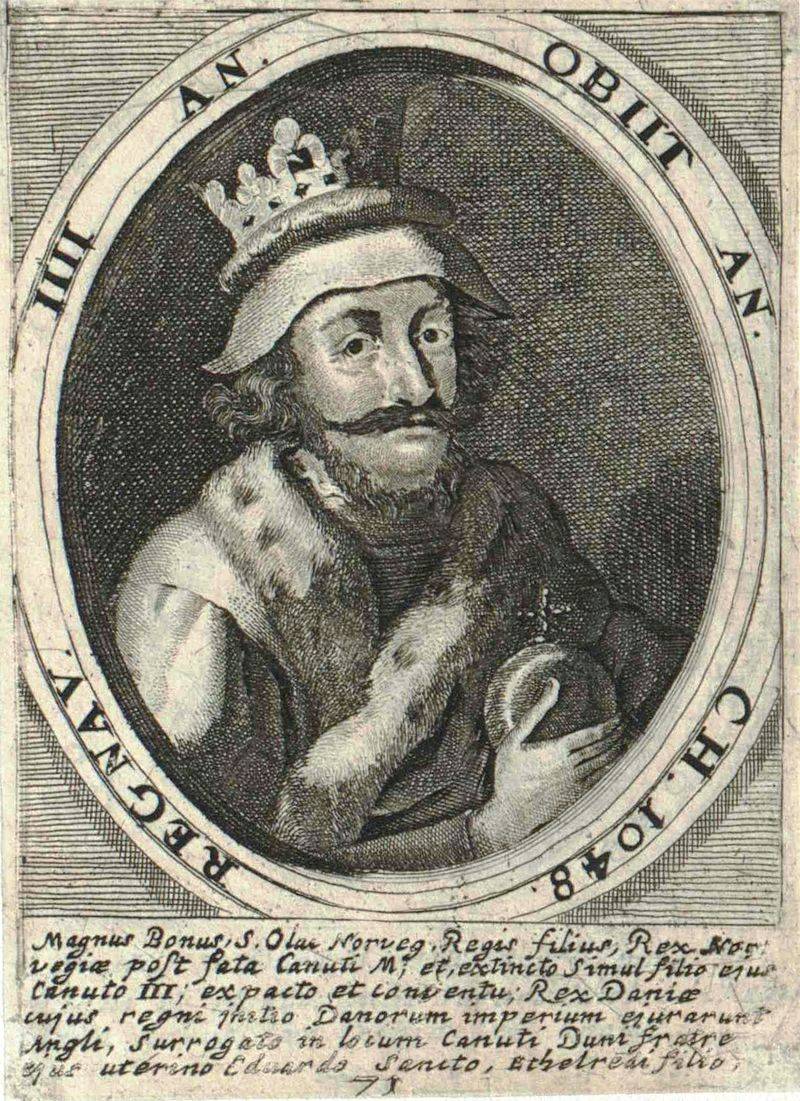
To be continued ...
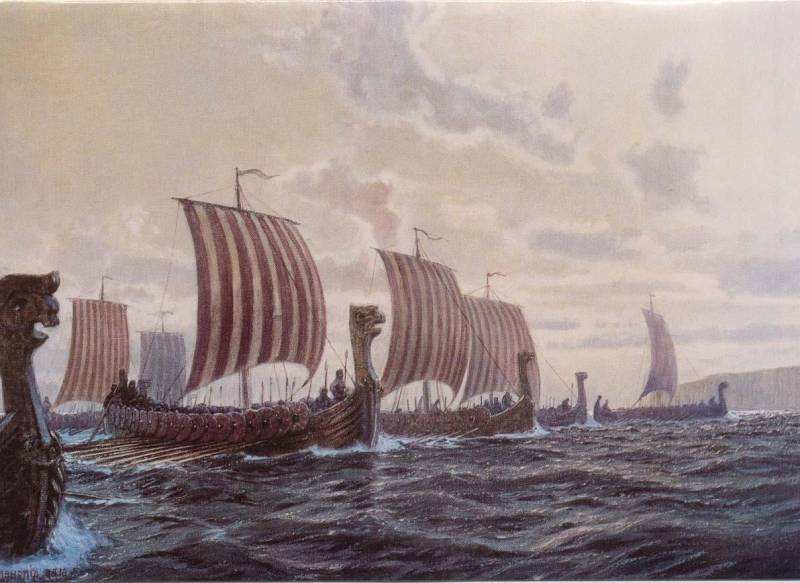
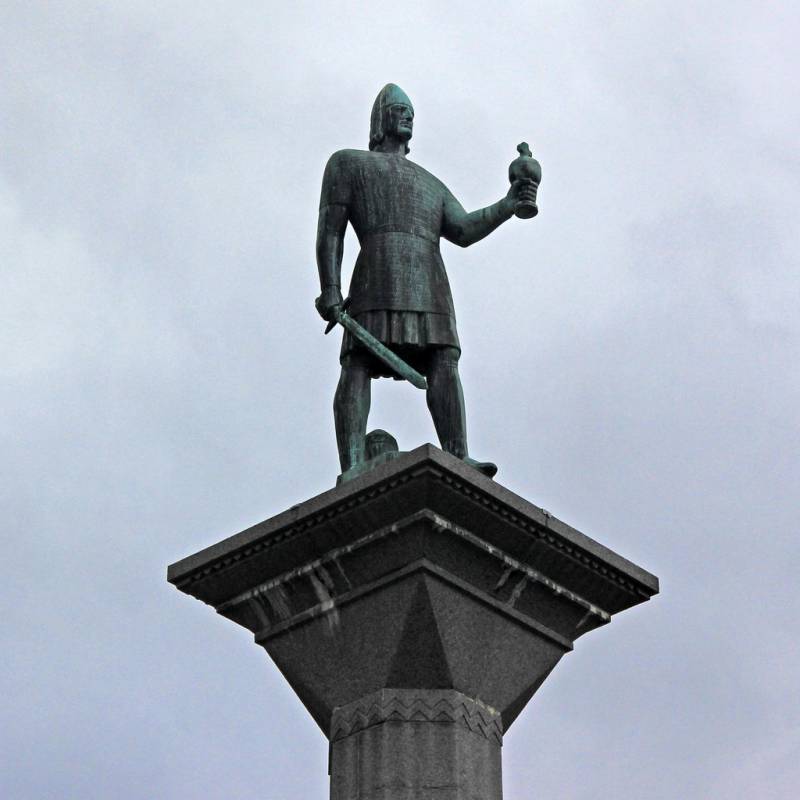
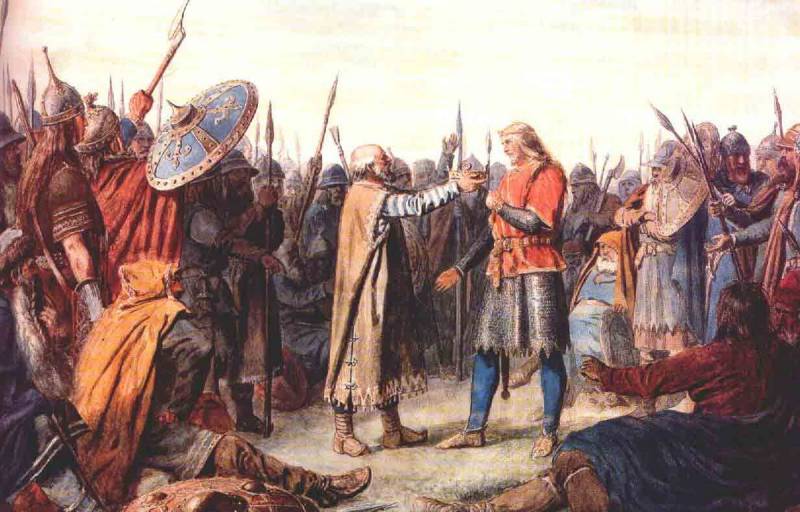
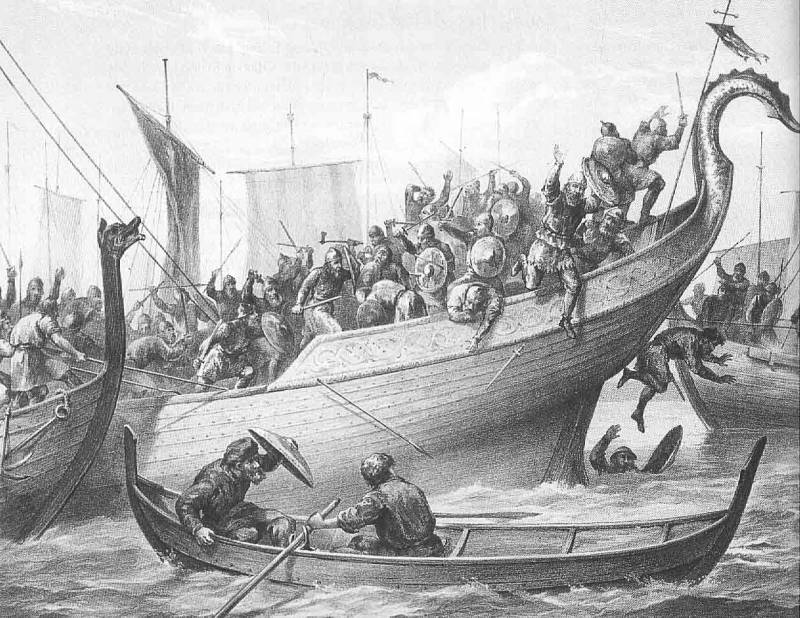
Information